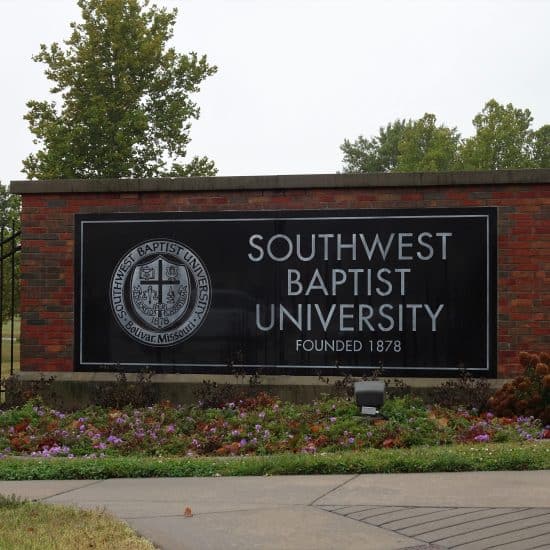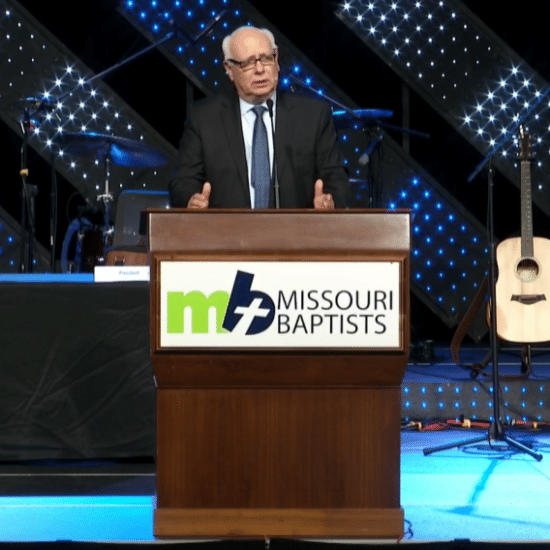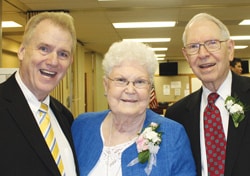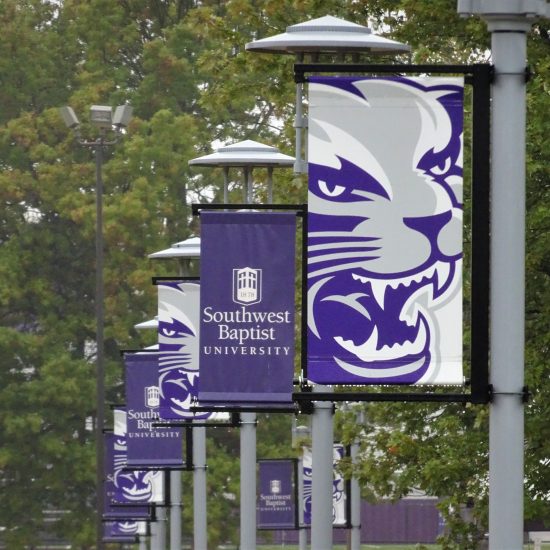
John Yeats, executive director of the Missouri Baptist Convention, called me out yesterday. He didn’t use my name, but in his MBC Pathway column he mentioned a legal brief my lawyer filed on my behalf objecting to Southwest Baptist University’s proposed amendments to its governing documents. The new documents would give almost complete control of the school over to the MBC. The MBC didn’t pay for the rights it would acquire if the court approves the documents. My legal brief argues that the MBC simply took those rights for itself by packing SBU’s Board of Trustees with people it knew would put the MBC’s interests ahead of SBU’s.
Yeats calls this “gossip,” and tells his readers to avoid it:
The other day in a court briefing, an attorney stated that MBC had some kind of master plan for the control of our great institution of higher learning in Bolivar, Southwest Baptist University. My immediate response was “What plan? Did someone write down a strategy and I didn’t get a copy?”
Allow me to look you in the eye and say, “The MBC’s vision for SBU is for it to prosper, thrive and fulfill its biblical purpose … .’” To believe some other narrative is to fail to discern the facts.
Yeats urges Missouri Baptists to avoid “social media” and “other news outlets.” He says “sometimes people spin a wild tale just to see who is gullible enough to listen and respond.”
Yeats certainly knows about keeping Missouri Baptists in the dark. If you only read the MBC’s Pathway, you have never heard of the legal challenge to SBU’s proposed new corporate governance documents being waged by me (a former SBU trustee), a current SBU professor, and a current SBU student — or the reasons behind it.

(Gennifer Miller/Unsplash)
Yeats doesn’t disclose that the legal brief he mentioned highlighted the fact that after a court hearing and multiple briefs from all parties — including SBU — the only actual evidence in the record states that the MBC engaged in a plan to pack SBU’s Board of Trustees with MBC loyalists while it was pressing SBU to give it control of the school and make the MBC the school’s “sole corporate member.”
Current SBU Trustee Robert Ingold was the acting chair of SBU’s Board when he handed out his own eight-page “brief” at last October’s MBC Annual Meeting in St. Charles. He also had been the chair of the SBU Board’s “Governing Documents Workgroup” that had just negotiated the new corporate governance documents with the MBC’s Executive Board leadership. Presumably he knew what he was talking about when he wrote in his document that a now-former SBU theology professor “collaborated with Convention leadership to remove all trustees from the SBU Board and replace them with trustees they regarded as doctrinally pure and loyal to the MBC.”
Ingold described how in 2018 the MBC’s Nominating Committee did not put SBU’s slate of nominees up for a vote of the messengers as it always had, instead substituting its own slate. According to Ingold, in November 2018, then-President Eric Turner learned about the “collaboration … [with] convention leadership to replace all SBU trustees.” Turner then held a meeting at his office in March 2019 that Yeats and other MBC leaders attended, Ingold wrote.
“Convention leadership expressed regret that Dr. Turner had been kept in the dark” and promised better communication, Ingold recounted.
But by October 2019, the MBC leadership still had not informed Turner whom it would nominate for seats on SBU’s Board.
“When Dr. Yeats was asked why this information was not communicated to SBU leadership, he said he did not know who the nominees would be but acknowledged there had been an abuse of the nominating process,” Ingold wrote.
The notion that the Executive Director of the MBC did not know the identity of nominees to be voted on later that month strains credulity.
At the 2019 Annual Meeting, once again the MBC leadership nominated its own slate for election to SBU’s Board. I was one of the SBU nominees whom the MBC refused to put up for a vote. I had served as an SBU trustee for a decade, taken the year off required by the bylaws, and then Turner nominated me for another five-year term.
For eight of my ten years on the Board, I had served on the Educational Policy and Personnel Committee, and I understood the efforts SBU had made to achieve the best track — Open Pathway — with its accreditation authority, the Higher Learning Commission. The MBC offered me no reason for departing from historic precedent and not putting my name up for a vote of the messengers at the 2019 Annual Meeting after Turner had nominated me.
Prior to the 2020 Annual Meeting, the MBC amended the Nominating Committee’s rules to strip all of its universities of the ability to nominate a slate of Missouri Baptists for their own boards of trustees.
Ingold, writing in October 2020, before the Annual Meeting, stated: “SBU has now had eight new trustees added to its board under the Convention’s plan to replace all trustees — three were added in 2018, five in 2019, and now [2020] we will receive six new trustees. The identity of these new trustees has not been revealed to SBU nor has SBU been permitted to participate in the vetting process.”
Indeed, Ingold was adamant: “You have heard of court packing. Now you know about packing of the SBU Board.” He predicted that if “the current practice of the MBC leadership, general counsel, and executive committee continues to force poorly-qualified trustees upon the entities,” Missouri Baptists would see “entities losing accreditation, entities losing donors, entities losing well-qualified faculty and staff.”
At the same time that the MBC executive leadership was summarily rejecting SBU’s nominations of qualified Missouri Baptists — some of whom had served faithfully on SBU’s Board previously, as I had — it was demanding that SBU accede to the corporate governance documents the MBC’s lawyer had drafted. Ingold wrote that he was told by the MBC Executive Committee that it expected to receive the revised Articles of Agreement by March 1, 2020 and the revised Bylaws by June 30, 2020.
These documents — which the SBU Board ultimately approved after those dates — are unsurprisingly one-sided. They make the MBC the “sole corporate member” of SBU (a provision Ingold described as a “non-negotiable item” for the MBC) and impose on SBU’s trustees fiduciary duties to serve the MBC’s interests. Under these documents, SBU could not so much as adopt a conflict of interest policy without the MBC Executive Board’s consent, and it could not even lease out real estate that it holds in its own name.
So yes, John Yeats, my legal brief argued that the Ingold document and my declaration — both of which were submitted to the court — are evidence that the MBC executed a plan to “pack” SBU’s Board with MBC loyalists in order to have SBU’s Board adopt new corporate governance documents that turn control of the school over to the MBC.
And as the legal brief observed, that evidence was unrebutted by SBU. Or, as you would say, “to believe some other narrative is to fail to discern the facts.”
I am proud of SBU and its history of being a cooperative partner with the MBC in providing a strong, supportive Christian environment for servant-leaders to undertake serious academic study. But SBU is a separate legal entity, and its trustees are charged with acting solely in SBU’s interests and preserving SBU’s assets, not handing them over to another entity — even one that historically has been a dear friend and partner.
I still hope the MBC and SBU can act responsibly to resolve this matter and remain aligned. As I told the court in my declaration:
My hope is that, as a result of my intervention in this matter, SBU’s Trustees can revisit the corporate governance issue and find a way to reach agreement with the MBC on a path forward that preserves the independence of the Board of Trustees, meets the Trustees’ exclusive fiduciary duties to SBU, and reaffirms the University’s commitment to remain in a prayerful, cooperative relationship with the Missouri Baptist Convention. The fact that they are separate legal entities does not mean that they are any less than full partners in complementary missions in the service of the same Christ.
Donald R. Jump, DDS, is a Baptist layman and SBU alum in Bolivar, Missouri.






